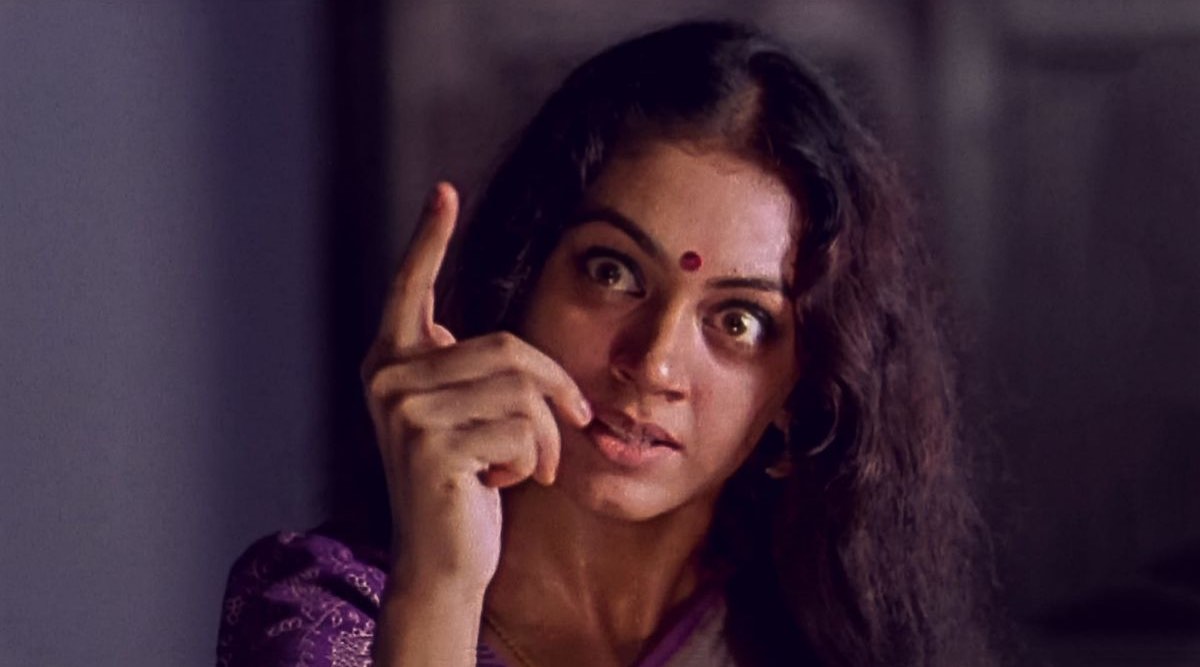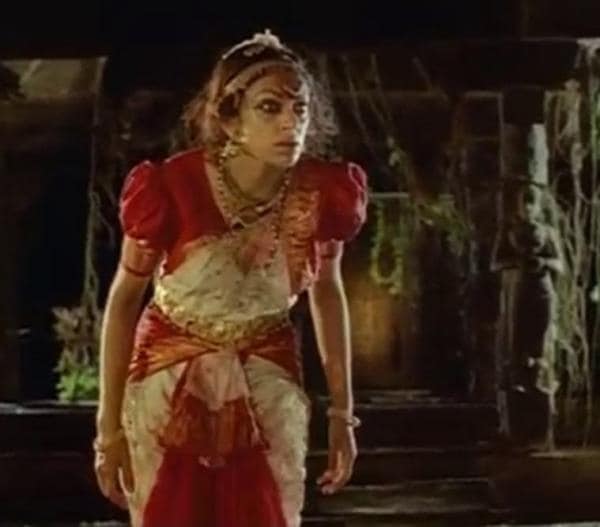 Shobana in Manichitrathazhu
Shobana in Manichitrathazhu the sequel to the 2007 hit is just around the corner and it promises the return of Manjulika, a lot of shrieking, some thrills, remixed songs and hints of a romance. The film stars Tabu—so this somewhat convinces me that this exercise won’t entirely be a dud, even if completely unnecessary. The prequel, Bhool Bhulaiyaa, was one of the many remakes of the psychological horror film Manichitrathazhu — and while it was good fun (with special credit to Rajpal Yadav), it could never tap into the mind games that the original film played. I am still perplexed as to why there should be a sequel for a story that had never intended to have a continuation, but well, Bollywood.
It’s not often that a horror film from more than 25 years ago continues to inspire the same amount of terror on multiple viewings, but Manichitrathazu achieves that feat easily. This is a period when effects were more garish and exaggerated with the comic thunder-lightening effects to emphasize its point. But there’s a haunting beauty to Manichitrathazu. It didn’t need any of that; and it wasn’t actually a horror film as we were led to believe, but instead a dark psychological thriller, carried entirely by the lead actor, Shobhana. Even established stars like Mohanlal and Suresh Gopi seemed to recede to the sidelines, when Shobhana was on the scene. She didn’t need VFX effects or any CGI to show the swift changes in her expressions — she could switch from the nervous Ganga to the bloodthirsty Nagavalli in seconds.
At first, Manichitrathazu seems to stick to the template set by old-timey horror film –a new couple comes to stay in an old house in Kerala, which appears to be the ideal setting for ghosts. The locals are wary as they feel something is off about the house, but Nakulan and Ganga, with their logical and rational thinking, ignore the discomfort and veiled warnings. Of course, things start to go very wrong. Along with the nervous Unnithan and Dasappan, we see a woman from walking in the house, with her hair in disarray. Next morning, they learn it’s Ganga. The answer isn’t so simple, and clearly the story doesn’t end there. Through Ganga’s perspective, we revisit another tale of treachery and heartbreak — the story of Nagavalli, a dancer, who was not allowed to be with her lover, Ramanathan. We’re led to believe that her spirit is possessing Ganga — one of the best tricks that filmmaker Fazil played. But even there, he confuses us further and leads us into another trap, making us suspect Vinaya Prasad’s Sridevi. Could she be the one trying to hurt Ganga? After all, she is miserable and bitter in life.
Like Nakulan, we don’t know what to believe, and convictions become shakier as more seemingly supernatural happenings take place. Slowly, we learn that Ganga suffers from dissociative identity disorder and channels the story of Nagavalli, a woman who was oppressed. In one of the most memorable and terrifying scenes of the film—Nakulan is compelled to provoke Ganga, and she displays superhuman strength. While other actors played the same character with different amounts of success, no one could pull off the same maddening look as Shobana did. The rage evaporates as abruptly as it comes, and Ganga returns to herself, and is rather frightened and confused.
Best of Express Premium
The tension doesn’t slow down after this, and leads to the most brilliantly horrifying song in Malayalam cinema— Orumurai Vandhu Parthaya. Shobana switches between her two personalities—as a graceful performer, contrasted with the chilling reality that shows her demonic frenzy. In both the scenarios, she dances with the same graceful urgency, but the wild, disconcerting expressions and eye-twitches are seared into audience’s memory. The scene is not just a testament to Shobana’s acting prowess, but to her dance skills. It’s no surprise that she won the National Award for this. She set a standard too high for such a performance. She was the victim, heroine as well as the primary antagonist, all in a film that had Mohanlal and Suresh Gopi.
 Shobana in one of the most iconic scenes in the film
Shobana in one of the most iconic scenes in the film There might be many remakes, but like Nakulan, they all pale in front of the real Manichitrathazu.
- The Indian Express website has been rated GREEN for its credibility and trustworthiness by Newsguard, a global service that rates news sources for their journalistic standards.

